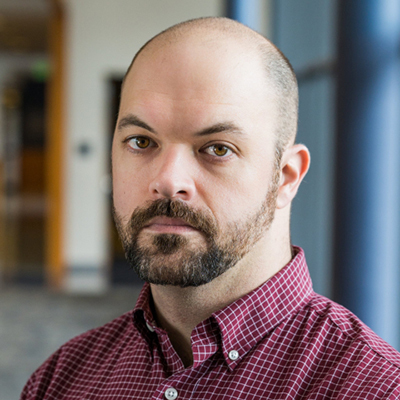Every Colonist for Themselves: Microbial Competition in the Phyllosphere
Plant Biology
October 30, 2023 @ 12:10 pm to 01:10 pm
108 Wartik Laboratory
University Park
Featuring:

Kevin Hockett
Penn State University
Research Summary:
Management of crop diseases continues to be a major obstacle to producing healthy and affordable food. Chemical-based control methods have been historically utilized to control plant disease because of their season-to-season reliability. The increasing emergence of chemical resistance among pathogen populations, coupled with better understanding of deleterious off-target effects, has prompted the need to develop or utilize alternative methods of control. Biocontrol agents (BCAs) have long been seen as chemical pesticide alternatives that can manage crop diseases. Often, however, the protection provided by BCAs have inconsistent year-to-year efficacy, which has resulted in reduced adoption rate. Work in my group seeks to improve pathogen control effectiveness by better understanding how to circumvent their anti-control strategies. Additionally, understanding how the plant environment can manipulate microbial interactions will help us understand how best to employ BCAs. Taking inspiration from naturally developing disease suppressive soils, my group has developed an approach that yields foliar microbial communities that are able to suppress either bacterial speck (Pseudomonas syringae pv. tomato) or bacterial spot (Xanthomonas perforans) of tomato. Our work has shown that our approach leads to disease dynamics similar to that observed in suppressive soils, in that disease severity increases initially, before declining to a steady disease level that is similar to or lower than the first inoculation. Future work aims to understand whether disease suppressive phyllosphere communities will provide more reliable year-to-year control than previous BCAs.
About the Speaker:
Dr. Kevin Hockett is an Assistant Professor in the Department of Plant Pathology and Environmental Microbiology. He received his BS in Microbiology from Oregon State University, and his PhD in Micorbiology from the University of California, Berkeley. He did a postdoc at the University of Arizona before joining Penn State in 2017, where he joined as a Lloyd Huck Early Career Professor.
His research focuses on the interactions between microorganisms living on aerial plant surfaces, particularly leaves, both to understand the microbial ecology of this interesting habitat, as well as to understand how to take advantage of these ecological interactions to help manage destructive plant diseases. His recent work has focused on the development of disease suppressive phyllosphere communities. These communities are conceptually similar to disease suppressive soils that have been studied for nearly a century. Through this work, he and his group, hope to develop effective cocktails of microbes that can be applied to control foliar diseases.

Contact
Teh-hui Kao
txk3@psu.edu